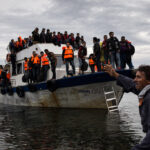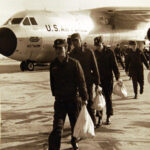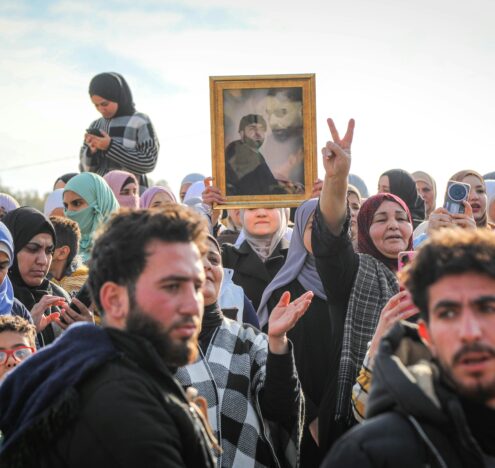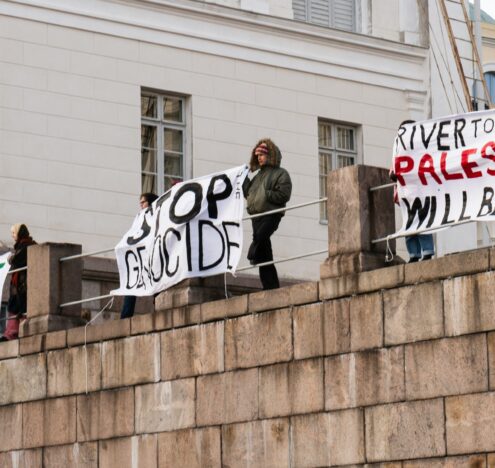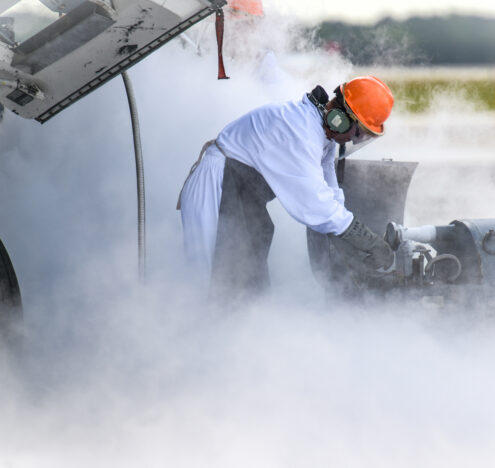The world stands at a nuclear crossroads. While some leaders mull nuclear weapons “modernization” programs to extend the age of nuclear arms into the next century, others insist that the path to security lies in the prohibition and elimination of nuclear arms. All the while, Russia’s war against Ukraine has thrown up pressing questions about the nature and sustainability of nuclear deterrence. There is an urgent need for public enlightenment and informed debate.
In recent years, several analysts have regrettably concluded that “narrow confines” plague the expert discourse on nuclear weapons policy. For one set of scholars, the dominant discourse projects “a conservative ideology […] that privileges a stable international order dominated by status-quo large nuclear powers.” For another, the expert discussion revolves around a limited set of basic ideas that “remain in place and tend to be recycled.” According to the president of the Ploughshares Fund, “Attempts to bring in other perspectives that might challenge the theology of nuclear deterrence are often derided.” Would-be reformers of the prevailing nuclear order frequently treat mainstream foreign policy think tanks as constitutive elements of the nuclear status quo.
Many, if not most, think tanks in the field, including those at the very top of the pecking order, accept large donations from nuclear weapons contractors and defense departments espousing nuclear deterrence.
What accounts for the “narrow confines” of the nuclear expert discourse? One hypothesis, outlined by professors Campbell Craig and Jan Ruzicka, is that institutions that support the existing nuclear order “enjoy funding, political support, and ‘policy relevance’; those who deviate from it do not.”
In a new article, we probe the plausibility of Craig and Ruzicka’s hypothesis by investigating the financial links between top foreign policy think tanks, on the one hand, and research funders with stakes in the continued development and deployment of nuclear weapons, on the other. While there are considerable limitations to the data — most think tanks do not disclose the precise size of the donations they receive — our results suggest that the hypothesis has merits.
WHO IS GETTING FUNDED?
All 45 institutions in our sample — the world’s top-ranked think tanks in the fields of foreign affairs and national security — acknowledged funding from nuclear arms contractors, governments that explicitly base their security strategies on nuclear deterrence, or both. Funding from actors eager to disrupt the status quo and advance nuclear abolition is minuscule by comparison. This striking feature is frequently glossed over or ignored in surveys of the field.
Admittedly, some of the think tanks in our sample derive only a small part of their budget from nuclear-dependent governments or defense contractors. The absolute and relative size of these donations likely has an important effect. Other factors, including the average duration of contracts, may also have a significant impact on the extent to which stakeholder funding undercuts real intellectual freedom. Yet, the fact remains that many, if not most, think tanks in the field, including those at the very top of the pecking order, accept large donations from nuclear weapons contractors and defense departments espousing nuclear deterrence.
HOW THE MONEY TALKS
How might research grants from politically motivated funders impact independent think tanks? Based on interviews with both think tank analysts and grant managers, we identify three mechanisms. First, in rare cases, certain donors (or think tank directors acting on their behalf) have engaged in outright censorship to suppress findings or voices judged as harmful to the funder’s interests. For example, one interviewee, a think tank analyst, recounted how their entire project had been canceled following the intervention of a major funder.
Second, think tank analysts often tailor their arguments — or eschew picking up certain topics altogether — to avoid offending current or prospective funders. Most of the think tank analysts we interviewed conceded that they had themselves engaged in such self-censorship. All believed it to constitute a serious challenge to the field. Several of the interviewees feared that radical or bold proposals, especially in the direction of disarmament, would scare off funders.
Third and most importantly, funders influence the nuclear marketplace of ideas by determining not only which topics, questions, and agendas are given attention but also which analytical milieus prosper. Funders, after all, are free to pick which institutes to fund and which research agendas to pursue. While funders may, in many cases, not have much or any say over what individual think tanks or analysts write or recommend in specific circumstances, they largely get to determine who gets funded to write or say something in the first place. And as one interviewee put it, “If you can control which questions are asked, you also control the discourse — you don’t need to provide the answers as well.”
While the provision of research grants by arms companies and government ministries may often be motivated by a genuine desire to advance knowledge, our interviewees identified other motives as well. These included networking opportunities, a desire to shape debates, and the reputational benefits associated with teaming up with institutions with expertise-based legitimacy. In the words of a grant manager for a company involved in the production of nuclear weapon systems, think tanks were provided with funding with a view to enhancing the “brand” of the company and in the hope that the recipient would think twice about saying anything that might harm the company’s interests. “To be honest, I’m not that interested in the research and analysis they produce. If I wanted substantial, solid analysis, I would go elsewhere,” they said.
The conclusions laid out above warrant careful thinking and debate. After all, it has been shown in a range of fields, from climate politics to nutrition to public health, that stakeholder funding can adversely effect knowledge production.
A CALL TO ENHANCE TRANSPARENCY
Our point is not that all nuclear policy experts fully or in part funded by actors with stakes in the nuclear weapons enterprise do poor or biased work; we value and rely on the work of many of the think tanks discussed in the article. Depending on the research questions under investigation, maintaining close relations with governments or business actors may even be of analytical benefit. Rather, our main worry concerns the effects of stakeholder funding on the makeup and orientation of the policy analysis community on an aggregate level.
Given the stakes involved, it is crucial that the ideas and agendas that predominate in the nuclear marketplace of ideas do so because they are good or particularly important and not because vested interests support them. A first and crucial step should be to enhance transparency around funding arrangements. The public has a right to know who funds the analysis that shapes their world.
Kjølv Egeland is a postdoctoral fellow with the Nuclear Knowledges Program at the Center for International Studies at Sciences Po in Paris. He is part of the NUCLEAR project. His work focuses on nuclear policy and international order.
Benoît Pelopidas is the founding director of the Nuclear Knowledges Program at Sciences Po and an affiliate of the Center for International Security and Cooperation at Stanford University. Nuclear Knowledges is France’s first scholarly research program on the nuclear phenomenon. It refuses funding from stakeholders both of the nuclear weapons enterprise and antinuclear activists to problematize conflicts of interest and their effect on knowledge production. He is the principal investigator of the NUCLEAR project funded by the European Research Council.
This essay has been made possible by funding from the European Research Council under the European Union’s Horizon 2020 research and innovation program (grant agreement no. 759707, NUCLEAR project).




